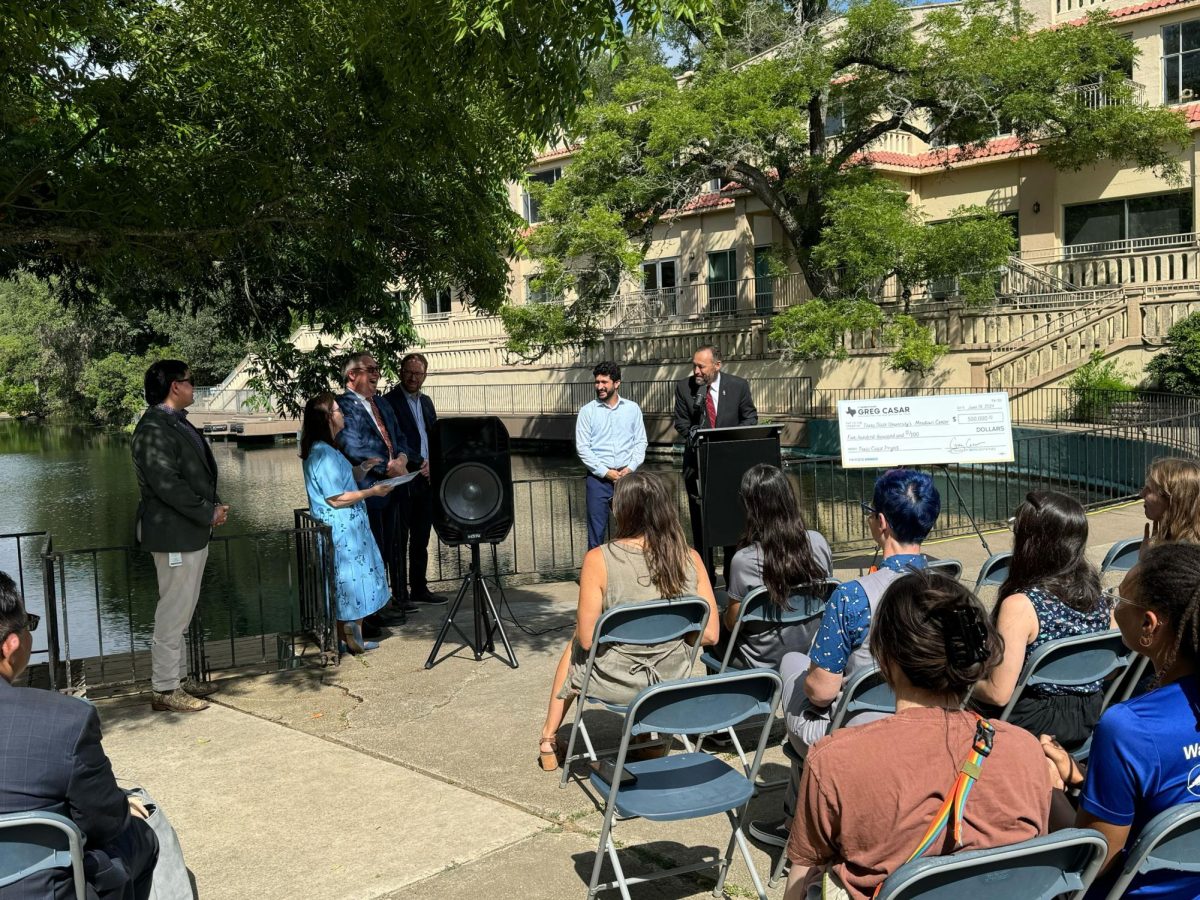Florida State has suspended all fraternities and sororities days after the death of a fraternity pledge who had attended a party, Nov 7. Following the death of a Texas State student last year, the university suspended only the fraternities involved.
Although police are awaiting an autopsy, they have indicated alcohol may have been involved in Andrew Coffey’s death. Police found Coffey unconscious Friday morning, after attending a party. The investigation continues as Florida State joins the list of university’s where students have died of suspected hazing or binge-drinking incidents in recent years.
At the beginning of October, Texas State sent out a memorandum to the student body, faculty and staff of the prohibition of hazing activities on campus. There are currently 12 organizations sanctioned by the university in regards to these violations.
The Anti-Hazing Law of 1987 defines hazing as any intentional, knowing or reckless act, occurring on or off the campus of an educational institution, by one person alone or acting with others, directed against a student, that endangers the mental or physical health or safety of a student for the purpose of pledging, being initiated into, affiliating with, holding office in, or maintaining membership in an organization whose members are or include students at an educational institution.
Hazing can take several shapes and forms and does not only seclude itself to extreme cases as is often thought off in regards to this topic. In 2013, 13 members of the Texas State marching band were charged with misdemeanor hazing after several upper-class members directed freshman drum liners to an apartment, blindfolding them and served them alcohol.
Mariana Zamora, interdisciplinary studies senior, was rushing for Sigma Delta Lambda last spring when she was hazed during bid day.
“They had told us we were going to be jumping into the river, and I just thought to myself ‘that’s silly, we’re not really going to be doing that,” Zamora said. “I ended up jumping forward and hitting a brick wall, breaking my nose.”
One of the biggest issues regarding hazing is the lack of realization from the leaders who often fail to acknowledge that their actions are considered hazing violations, despite having to go through a state-mandatory risk management training in several topics. Unfortunately, most victims are convinced that these incidents do not constitute hazing and are only mistakes or the only way for them to integrate within the organization.
Brenda Lenartowicz is the associate director for Student Involvement and has been overseeing organizational conduct for five years.
“A lot of times, groups don’t realize that it’s hazing,” Lenartowicz said. “They just think it is tradition or this is what we have always done and so, sometimes when you’re in an investigation, it’s really hard to separate them for realizing that this is a hazing activity because they believe its trust activity.”
Texas State has very strong policies against those who engage in hazing activities, describing it as the antithesis of the school’s mission because it results in diminishing an individual’s pride and self-esteem. Robert Dudolski, associate dean of Students, works alongside the Student Involvement Office in order to monitor these organization activities on campus.
“We have spent a great amount of time educating students about issues surrounding hazing and I believe that the increased education and heightened awareness surrounding this issue has encouraged students to step forward and report any behaviors they see that fall in that area,” Dudolski said. “Our main source of hearing about hazing comes from the students themselves and we appreciate that our students are not bystanders and will engage in confronting or reporting hazing when they see it happening.”
Once allegations of hazing are brought against an organization, the university opens an investigation, a process that usually takes a couple of months. The evidence is searched for and interrogations with involved individuals take place before sanctions are decided. A criminal investigation can be opened as well if the allegations are reported to the police department.
The best thing students can do if they are a victim of hazing or witnessing it is to report the violation immediately to any staff member or faculty. Students are encouraged to contact the Dean of Students Office or the Student Involvement Office, both located in the LBJ Student Center. Most importantly, inform those around you if a situation becomes uncomfortable or makes you feel unsafe.
Florida State suspends greek life for student death
November 13, 2017
Donate to The University Star
Your donation will support the student journalists of Texas State University. Your contribution will allow us to purchase equipment and cover our annual website hosting costs.
























